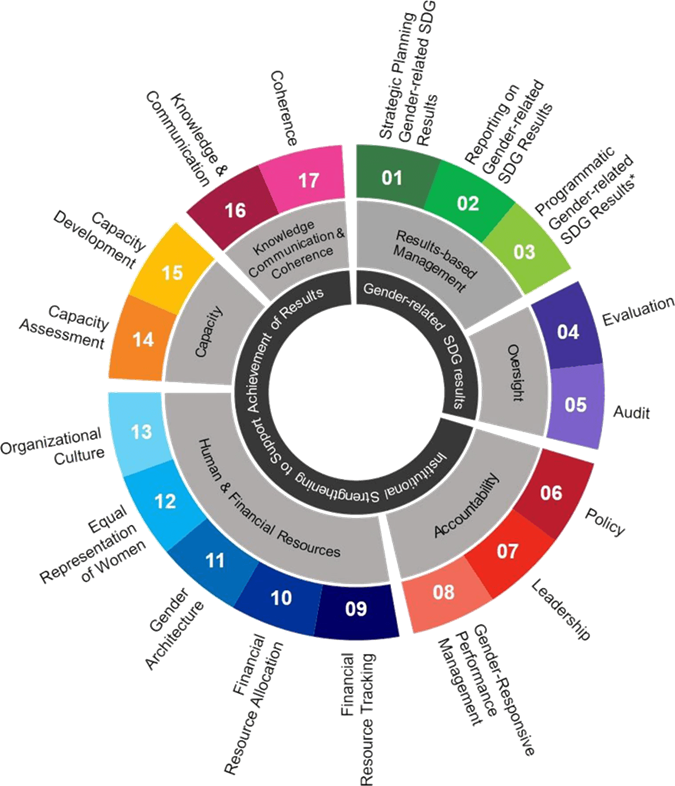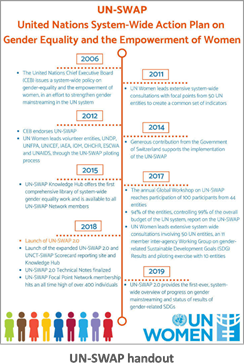Promoting UN accountability (UN-SWAP and UNCT-SWAP)
In 2012, spearheaded by UN Women, the United Nations agreed on the landmark UN System-wide Action Plan (UN-SWAP) on Gender Equality and the Empowerment of Women (GEEW). The Action Plan implements the 2006 United Nations System-wide Policy on GEEW of its highest executive body, the UN Chief Executives Board (CEB), chaired by the UN Secretary-General. For the first time in UN history, the UN-SWAP enabled gender issues to be mainstreamed systematically and measurably into all major institutional functions of the UN system entities.
The UN-SWAP framework also set out a plan for three aligned foci of accountability for gender equality and the empowerment of women:
- The UN-SWAP at the individual entity level
- The UNCT-SWAP Scorecard at the UN Country Team level
- Development results at country and normative levels, as an extension of the UN-SWAP and the UNCT-SWAP Scorecard
UN-SWAP 1.0
Implemented from 2012 to 2017, the first phase of UN-SWAP consisted of 15 performance indicators based on intergovernmental mandates. A total of 66 UN entities (94 per cent), corresponding to more than 99 per cent of the UN budget, reported on progress annually. The framework uses a five-point rating scale ranging from “not applicable” to “exceeds requirements” for every performance indicator. This allows progress to be defined uniformly, measured progressively, and articulated aspirationally.
UN-SWAP 1.0 has facilitated significant and sustained improvement in the performance of UN system entities in mainstreaming gender equality. For instance, over the period 2012–2017, 37 entities developed gender equality policies. By February 2018, 32,454 staff of reporting entities had completed the online, self-paced UN Women “I Know Gender” e-training course for non-gender specialists. The course is now mandatory for staff in 31 entities, including in the Office of Human Resources Management of the Secretariat.
UN-SWAP 2.0
Upon expiry of the initial UN-SWAP duration, a second generation of the UN-SWAP was developed with widespread consultation across UN system entities and launched in 2018. It updated and expanded UN-SWAP 1.0, building into it refinements and lessons learned, as well as aligning it with the 2030 Agenda for Sustainable Development, with its focus on results.
While the first phase of UN-SWAP implementation focused on gender mainstreaming and planning, the second phase is designed to focus on results, and includes monitoring activities and outcomes for gender-related Sustainable Development Goal results.
For more information, please see the “UN-SWAP 2.0 framework and technical guidance”.
Overview of UN-SWAP 2.0 performance indicators

Please contact the for more information.

